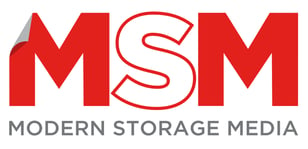Affordable Digital Solutions
Remaining Competitive On The Web
Digital marketing software overload! That’s what most small and mid-sized operators (SMOs) feel when they start researching online marketing tools. Do a simple search for these tools, and you get hundreds of results and options. Many SMOs don’t know where to start and give up before they’ve even scratched the surface.
If you’re a larger operator, this article isn’t for you. There are great, enterprise-level online platforms that have been created to help larger businesses, and often the enterprise-level software providers will customize their solutions for particular industries.
That doesn’t apply to most of us. Not even for us here at Storage.com. We have a large website and lots of clients, but we’re still operating in many ways like a small business. We just purchased our domain last year and still have a long way to go before we’d think about investing into some of the enterprise-level solutions out there.
That doesn’t mean SMOs have to miss out. There are plenty of platforms available today that can help you keep up with your current digital marketing strategies as well as help you to improve upon what you have been doing.
A great place to start is with these core areas that have a daily impact on your business’ success:
- search engine optimization (SEO)
- keyword research tools for content and SEO
- social media management
- email marketing
SEO Tools
Free: Google Analytics is a great tool for small storage facility operators with a new website because it gives you a wide range of measurements without getting you into the weeds of SEO. You can see the number of visitors to your site in specific date ranges. You’ll be able to check where visitors are coming from (whether through organic traffic in search or social media profiles) and you can find how many visitors are seeing pages that contain more information on your facility. Google Analytics works well as a free tool because it gives you just what you need, but unfortunately not much more. In order to dive a little bit deeper into your SEO efforts, you’ll need to spend some money.
Paid: Moz Pro, which offers a 30-day free trial, costs $99 per month for the standard package. With the standard package, you can track your current digital campaign (as well as four others) to stay up-to-date on how each is doing. With Moz Pro, you’ll be able to find, among other items:
- Your website’s current domain authority (i.e., how strong your website is in search)
- Website crawl errors (i.e., if problems exist on your website that hurt you in search)
- Keyword rankings (i.e., helps you understand if you rank for competitive keywords)
Moz Pro was designed by SEO professionals. For the cost, it can provide small facility operators with valuable data to improve their website from the ground up.
Keyword Research Tools
Free: Finding relevant keywords that improve your website’s search visibility can be difficult if you don’t know what people are searching for through search engines. With Keyword.io, you can simply type in certain keywords to find alternatives to use in the content on your website. Trying to use “self-storage” over and over again on a website won’t help you to succeed over the competition because they, too, are trying to rank for the same word.
Instead, Keyword.io provides you with longer key phrases that follow along with what a storage customer may search for on a daily basis. This way, you can continue to adapt the content you create to fit with what is being searched for today instead of trying to rank for the same general keywords.
Paid: Similar to Keyword.io, SEMRush can help you determine keywords for free, but with their $69.95 per month Pro version you can find more. Specifically, you’ll be able to search your own website for the keywords that have been the strongest in search results. But this is only one of the added benefits over the free keyword tools available today. In addition to conducting better keyword research, SEMRush also has a full suite of analytics tools built in to help you track your website as well as competitive research tools to help you build out future digital campaigns. For small operators, the $69.95 per month is a valuable investment. You get all of the benefits of the free SEO and keyword tools rolled into one with even more at your disposal.
Social Media Tools
Free: With Hootsuite’s free version, you have the ability to add three social media profiles you use on a daily basis. Once you add each platform, it will begin to populate on a main dashboard where you will see items such as most recent tweets, new Facebook posts, and the interactions occurring on each platform. In addition to having quick access to each profile, you also have the ability to schedule posts for later that day, that week, or that month, and you’ll gain access to basic social analytics like profile growth, which will help you better understand where your online audience is finding you.
Paid: Similar to Hootsuite, Sprout Social serves as your all-in-one dashboard for all of your social media profiles, allows you to interact with customers on Twitter, and has a built-in reporting tool. But there’s more to Sprout Social than just those similarities. Sprout’s Deluxe plan is $59 per user per month, but what you get from Sprout far exceeds the cost. Unlike Hootsuite, you have more robust capabilities for brand monitoring, allowing you to see what people are saying about your facility while having the ability to track popular keywords to see if you’re associated with them. Also, the reporting options you get will allow you to see more than just overall growth. You’ll be able to track post engagement, how often consumers engage with your profiles, and demographic research that lets you know who is interacting with you.
Email Marketing Tools
Free: MailChimp’s free plan is a great option for small storage operators who are looking to begin collecting emails and sending out simple newsletters. Even better, MailChimp is easy to use for both beginners and email pros. Storage operators new to creating email campaigns won’t need any development knowledge before designing emails. Through MailChimp’s drag-and-drop email designer, you can create the layout of your email quickly and easily on your own without needing any HTML or CSS knowledge.
On top of simplified design options, MailChimp also offers free users campaign reports to see how your campaign’s performing. You’ll see stats like new subscribers (if you’ve added the newsletter signup to your website), open rates, and click-through rates.
Paid: Emma, which can be found online at myemma.com, has a few similarities to MailChimp’s free version, but not many. You can create emails using a drag-and-drop editor, and you can add subscriber forms to your website, but the similarities stop there. Emma has pricing options depending on how many contacts you have ranging from $49 per month with 2,500 contacts to $269 per month for 50,000 contacts. This gives you the chance to add to your plan depending on need.
With the emails, you have 200 different templates to build your own email upon, available customer support (which MailChimp Free does not offer), and you can compare up to five mailings at a time. With more options available and no additional costs based on how many emails you send, Emma is a great option for small operators looking to grow their email campaigns.
As any SMO can attest, finding the right mix with available tools can be difficult if you don’t know where to look. While we don’t use many enterprise-level tools, we have had opportunity to test most of the “best” software out there. We’ve found the above tools do almost everything more expensive software does, and we still continue to use each of the platforms above when the situation is right for our clients and their budgets.
Bill Hipsher, Storage.com
More Content
Popular Posts
The self storage industry is in a precarious...
The REITs new pricing strategy – lowering...
With the approval of both companies’...
Recent Posts
Ramey Jackson is the CEO of Janus...
Imagine preparing to move and needing to...
Owning or managing a self-storage facility...
Helen Keller is quoted as saying, “Alone we...
It’s often been said that “opportunity is...
There’s a saying in Florida that there are...
The landscape of the self-storage industry...














